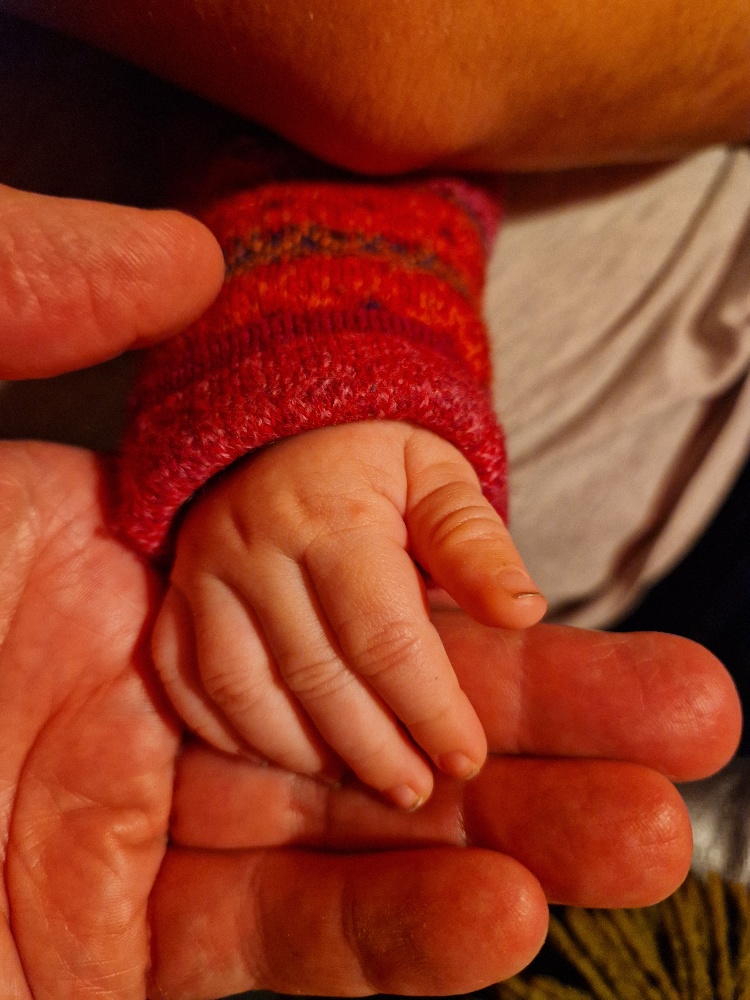Fate

After several failed attempts, one day, at last, Finnegas caught the Salmon of Knowledge. He brought it home and instructed Fionn to cook it, warning him not to taste even a single bite. As Fionn roasted the fish on a spit over the open fire, he noticed the scaly skin forming blisters. Of course, he wanted the fish not only to taste delicious but to be well presented, so he pressed his thumb on a blister to flatten it down. In doing so, he burned his thumb on the hot skin. Without thinking, he put his thumb into his mouth to sooth the pain. In that moment, all the wisdom of the salmon passed into him…
Be Plankton!
For traction, the journey now needs the lighting of a fuse. This fuse is called „faith“. Without faith we are doomed to repeating and continuing patterns of thoughts, emotions, and actions governed by fear. With a little bit of faith, we can begin doing new things and doing familiar things in new ways. When we experience some healing as a result of this, the faith evolves into „hope“. Hope is just what the hopeless addict needs for this journey of liberation. On exercising the hope for a while and learning to cultivate hope within ourselves, the hope evolves further, this time into „trust“. Now we can ship oars, in the trust that we have everything we need for a successful journey…
A Way Out
The substance addict is deeply ashamed and feels guilty about what he’s doing, and he cannot help himself. But he can’t stand the inner barrage of shaming and self-recrimination, so he projects his own anger at himself onto his spouse. He says: “If it weren’t for you, I wouldn’t drink! You’re the one who makes me drink.” And uses this kind of rationale so that eventually the spouse begins to feel “Maybe I am the reason. Maybe it is me! If only I could change and treat him differently, he wouldn’t drink.” In this manner, the spouse has become very neurotic and sick themselves and needs help…
Realignment

They’re the people who come out on top, and I used to be one, so there! And I like university professors. But you know we shouldn’t hold them up as the high watermark of all human achievement. They’re just a form of life. You know, another form of life. But they’re rather curious, and I say this out of affection for them, but something curious about professors in my experience, not all of them, but typically, they live in their heads. They live up there and slightly to one side. They’re disembodied, you know, in a kind of literal way. They look upon their body as a form of transport for their heads.“…
Two Wolves

I like to see the two wolves as representing reality and delusion within my own perception. Our sorrow, our fear, our shame, our loneliness, even our despair; these are fragile and have no more substance than a shadow. This is the reality. We create the delusion, ourselves, when we begin to focus on our sorrows and fears in a way that adds fuel to them. The more we complain about them, over-analyse them, identify with them, or push them away, the more „real“ they appear, the more solid and independent of us they seem to be, the more power they have over our well-being.,,
On Purpose

The central argument Frankl makes is that life has meaning whatever the circumstances, even when profound suffering is encountered. The title itself is the core message: we can and must say „yes to life“ not because of circumstances, but in spite of them. It is easy to say „yes to life“ when everything is going well. If that „yes“ is contingent on circumstances, however, it can never be sustained because, as we all know, circumstances change as much as the weather in my native Ireland. Everything, even our existence in this incarnation, is transient…
Unlearning

When I thought I was heading to the most densely populated central quarter of town, I could feel the energy of the city ebb away into the calm of the countryside, beyond the countless improvised homes of the peri-urban belt. Then, in a moment of clarity, the riddle solved itself. Of course! I had, as always, been working on the premise that the sun was in the south. Not here! Roughly 2,500 km south of the equator, the sun appears to be in the north. This was the first of many lessons in unlearning which came my way during my African adventure…
State of Grace

When the guided meditation concluded, we all slowly “came back”, stretching limbs in all directions and blinking our eyes to re-adapted to the artificial room lighting. There were many smiles to be seen on the faces of the small group which had thus gathered in our corner. After a period of silence, a conversation slowly began to unfold on what we had just experienced. We quickly began to explore such topics as connection and alienation. Why is it that, during deep meditation, some of us find our bliss tempered by sadness, even grief. And what about the high degree of sensitivity that some of us manifest? Is high sensitivity simply more than a somatic or emotional manifestation? Is it not primarily spiritual sensitivity?
Redemption

That is what the Twelve Steps are all about: a shift in perspective. Before we begin the journey of recovery, we are caught firmly in a trap that we cannot spring through self-sufficiency or mere egoic willpower (ergo the need for a “Higher Power” of our own understanding). We also suffer from a chronic perception disorder because of having lived so long in chaos, overwhelmed mode, denial, delusion, and the suppression of all the emotions we could not process or endure during the first, formative years of our lives. As traumatised adult children, we see the world as we are, not as it is..
Change Paradox

The caterpillar does not engage in a coercive attempt to change herself into a butterfly. She is wholly at one in her caterpillar existence. Without this self-acceptance of “what is”, the organic transformation cannot take place. How do we get to such a point of growth and development? The first step is to quit running away from our version of “what is”. Our society stimulates us to be on the run, around the clock. Addictions, both substance-related and behavioural, are the grease that keeps the wheels of our modern global consumer society moving. As long as we buy into the lie: “I’ll be happy when…” we will be tilting at windmills like our old friend Don Quixote…

